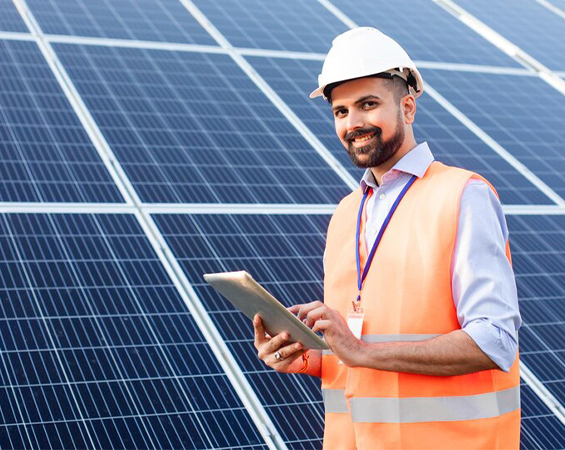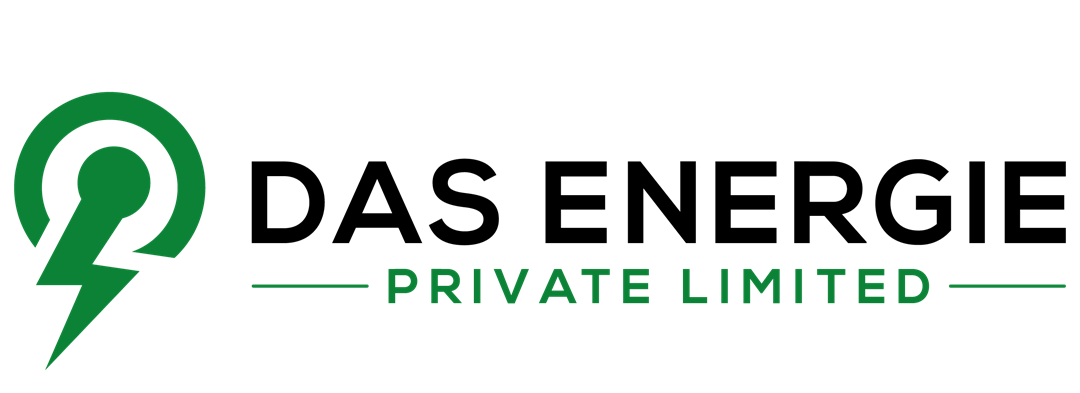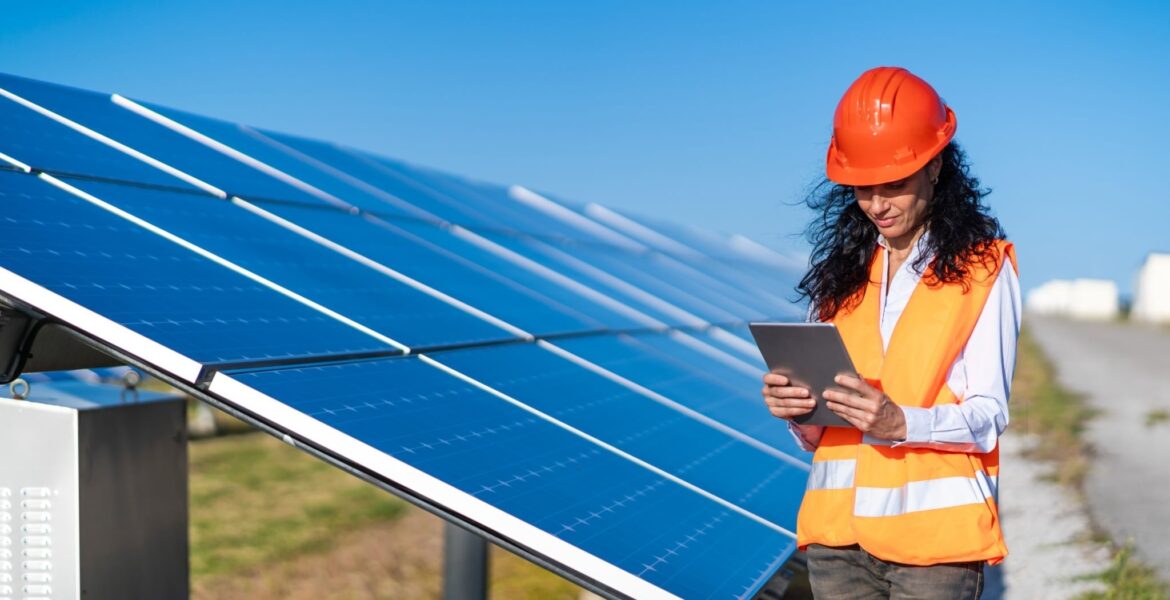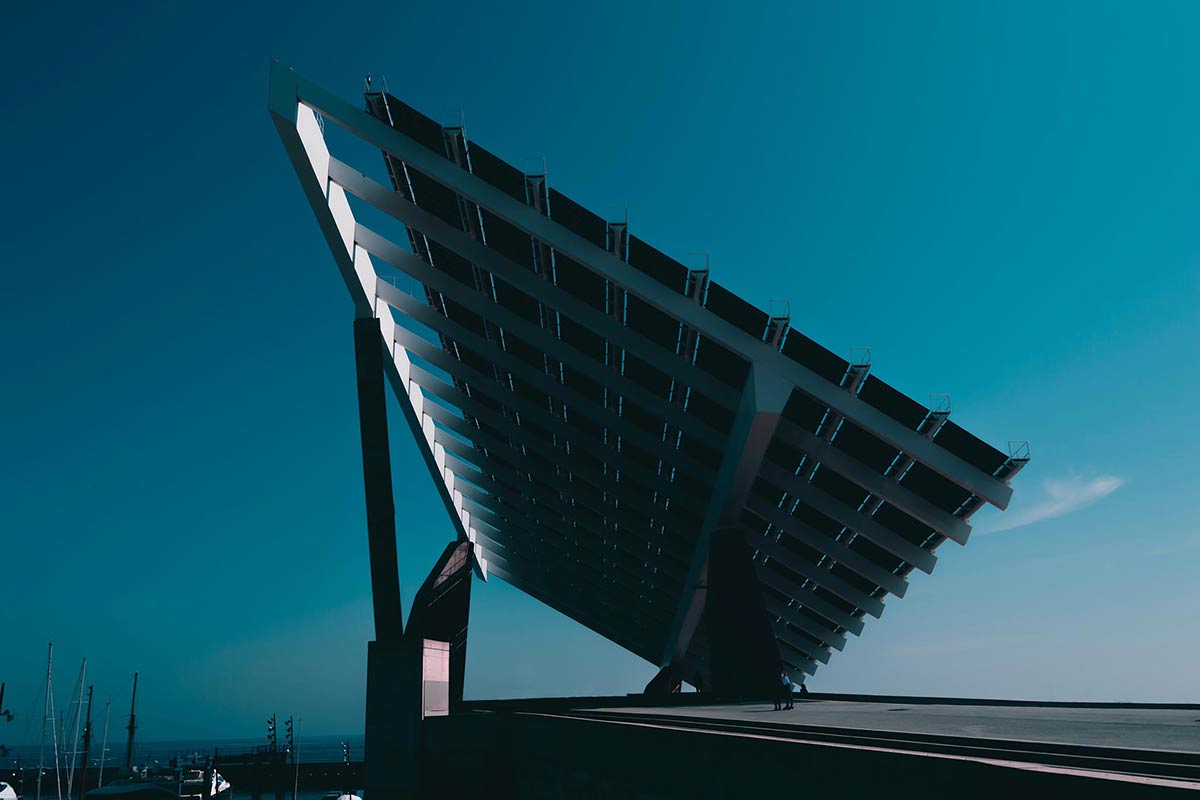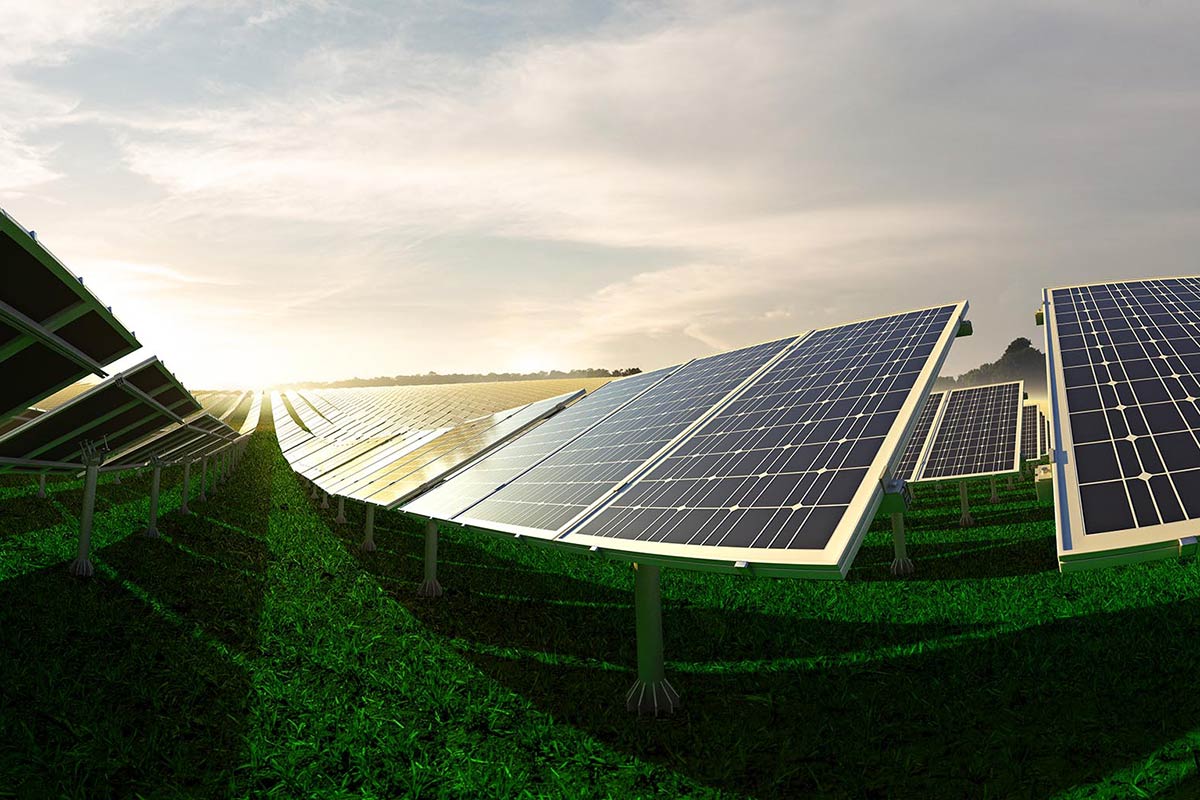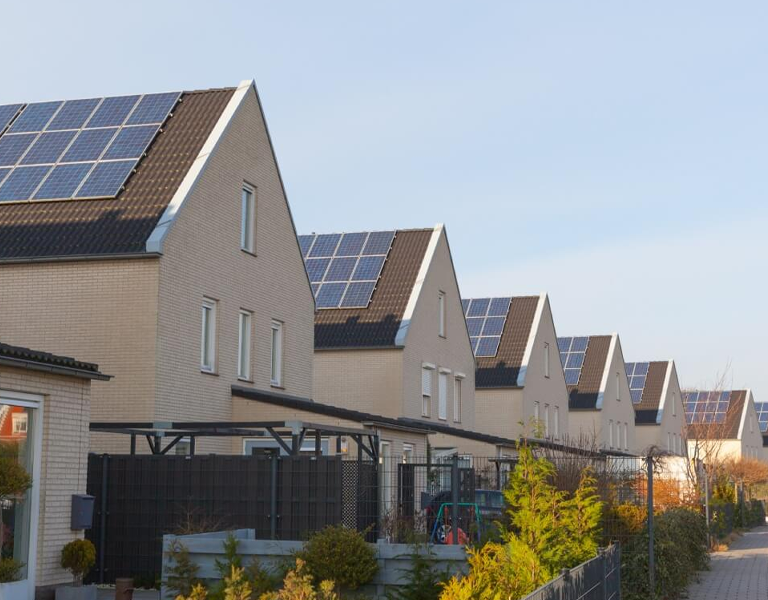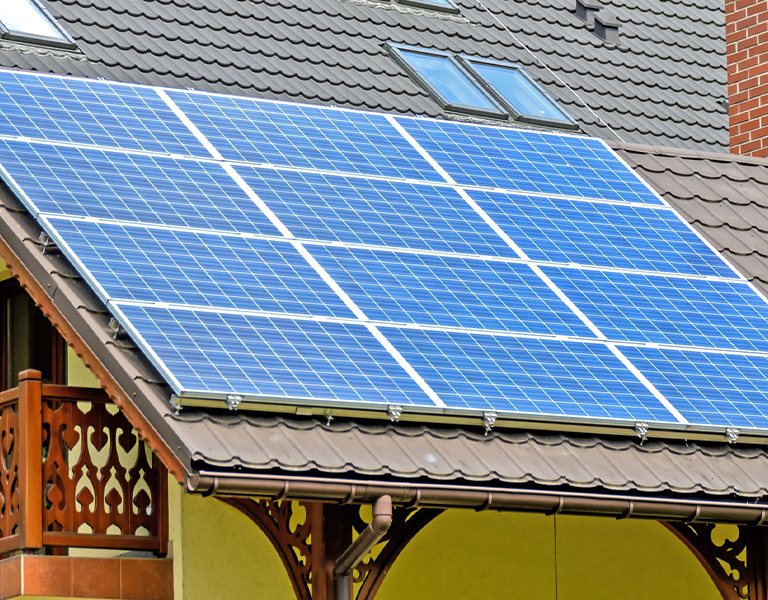Benefits, Factors, and More
Is your company facing the challenge of soaring electric bills that are hindering your growth and profitability? It is time to find out the perfect solution for you that can revolutionise your company -commercial solar panels. With the rapid increase in industrialisation in India, the demand for solar panels is skyrocketing due to the hefty electricity bills. In India, most commercial sectors like cement, paper, steel, chemical, dairy, and ceramic industries are increasingly switching to solar panels to reduce their electricity expenses.
We at Das Energie Private Limited understand the urgent need for this cost-effective sustainable energy solution. Our company offers a comprehensive range of commercial solar products tailored to meet your industrial requirement. Continue reading to learn about the importance of solar power for commercial use and gain insights into the installation process. Our comprehensive guide is designed to help you make informed decisions that can contribute to a brighter future for your company.
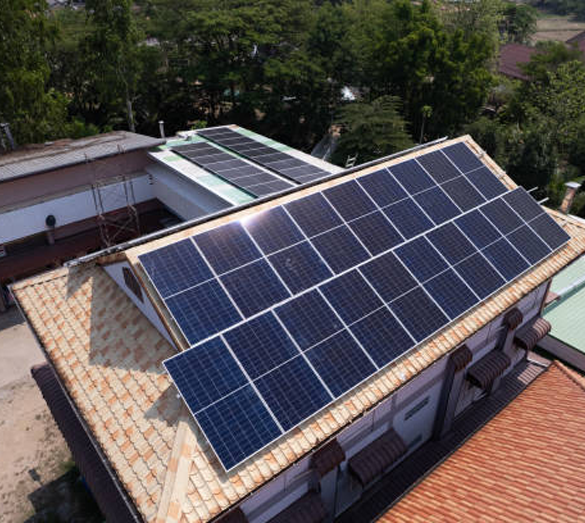
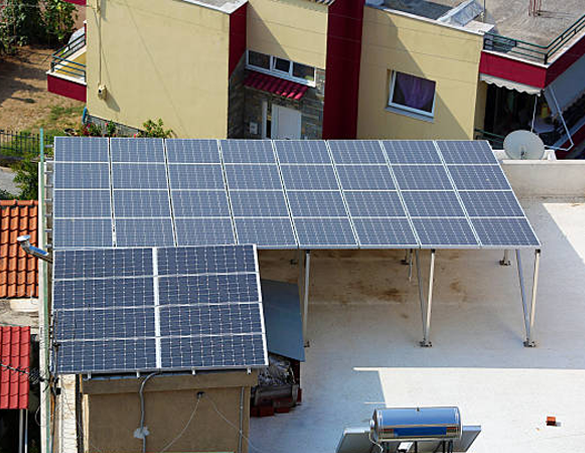
How Do Commercial Solar Panels Work?
In a commercial solar system, the process is simple and efficient. Solar panels consist of multiple solar cells composed of layers of silicon, phosphorus, and boron arranged in a grid-like pattern. Commercial solar panels absorb the sunlight energy and convert it into DC electricity. This electricity then flows through a solar inverter, which converts it into AC electricity, used in commercial properties, companies, and factories. Our inverters are available in various power levels, ranging from 2.5 kW to 250 kW, allowing you to meet the specific requirements of various commercial applications. A commercial solar system automatically sends back any excess electricity generated to the utility grid through a process known as net metering. The government will either credit the surplus electricity on your upcoming electricity bill or provide compensation for the energy you contribute to the grid.
What Components Are Required for Commercial Solar Panel Systems?
A commercial solar panel system consists of several key components that work together to utilise solar energy and provide electricity for your business. Understanding these components is crucial for a successful installation and efficient operation
Sun’s Energy
Solar systems rely on the sun's energy to produce electricity. Solar panels contain silicon cells that absorb sunlight, initiating the photovoltaic effect, where electrons are set in motion, generating an electric current. This process allows your panels to produce electricity as long as there is sunlight, even on cloudy days.
Solar Panels
A solar panel captures sunlight and converts it into electricity through photovoltaic cells. They are the most visible part of a solar system and play a crucial role in generating power for your business. You should carefully consider panel performance, durability, installation, and warranties.
Solar Inverter
The solar inverter converts the DC electricity generated by the solar panels into AC electricity, which powers the commercial loads. There are two common types of inverters:
- String inverters
Commercial solar installations commonly use these inverters. They install them in a centralised location and connect them to multiple solar panels in series, forming a string. Moreover, string inverters are cost-effective and efficient for larger solar panel systems.
- Micro-inverters
Micro-inverters are small inverters attached to each individual solar panel in a solar system. Unlike string inverters, these inverters operate independently for each panel, allowing for maximum power output from each panel. This inverter offers increased flexibility and monitoring capabilities.
Racking
Racking, also known as mounting, securely attaches the solar panels to your rooftop. It is essential to use high-quality racking systems that ensure the stability and safety of your solar installation. At (company name), we prioritise quality and take the necessary steps to ensure proper installation and long-term performance.
Solar Batteries
The solar batteries store excess energy produced during the day for use during periods of low or no sunlight. They are especially beneficial for businesses that operate at night or during power outages. While batteries may incur additional costs, they reduce dependence on the grid and lead to long-term electricity savings.
Electrical Panel
The electrical panel connects your solar panels to your building's electrical system. It allows you to utilise the electricity generated by your solar panels to power your business and can also facilitate the exchange of excess energy with the grid.
Power Grid
The power grid serves as a backup and source of additional electricity when your solar panels cannot meet your business's energy demands. Excess solar energy can be fed back into the grid, reducing your energy costs or even generating income through net-metering programs.
What Are the Essential Requirements for Commercial Solar Panel Installation?
In addition to the key components of a commercial rooftop solar panel installation, there are certain essential requirements that we prioritise to ensure a smooth and efficient process from evaluation to installation. To ensure a successful installation of solar systems on commercial rooftops, there are a few mandatory requirements that we take care of:
Roof Inspection
Solar systems rely on the sun's energy to produce electricity. Solar panels contain silicon cells that absorb sunlight, initiating the photovoltaic effect, where electrons are set in motion, generating an electric current. This process allows your panels to produce electricity as long as there is sunlight, even on cloudy days.
Roof Type
If you have an RCC roof and want to utilise the area for other purposes, you need hot-dip galvanised steel mounting structures. For metallic sheet roofs, we offer aluminium rail structures that are lightweight, corrosion-resistant and most importantly durable.
Slope, Direction, and Mounting Angle
Optimal solar panel generation is achieved when the roof slope faces southward. We carefully determine the spot for installation to ensure it remains free of shadow.
Easy Access to the Rooftop
Das Energie Private Limited ensures there is safe and direct access to the commercial rooftops, allowing our installers to transport all the necessary materials for solar panel installation securely. Moreover, we also facilitate regular maintenance visits every fortnight. By choosing our solar products and services, you can rely on our expertise to handle these installation requirements effectively. We also ensure that your commercial rooftop solar panel installation is carried out with the utmost care and professionalism.
What Are the Benefits of Using Solar Products in Commercial Sectors?
Das Energie Private Limited understands the significance of solar power and the remarkable advantages it offers in commercial sectors. By incorporating our solar products you can unlock a range of benefits that will enhance your brand image. These benefits are as follows
Cuts Overhead Costs
You can control your electricity expenses and significantly reduce your overhead costs. With our solar panels, you can decrease your electrical bills by 50-90%, providing substantial savings for your company.
Energy Independence
With our solar products, you can achieve energy independence for your business. You can say goodbye to reliance on commercial energy suppliers and reduce your dependency on the power grid.
Reduces Carbon Footprints
Obtaining solar power, a clean and renewable energy source enables you to significantly reduce greenhouse gas emissions from your industry. By choosing solar products from Das Energie Private Limited, you can reduce global warming and demonstrate your commitment to environmental sustainability.
Increases Property Value
You can enhance the value of your commercial property with solar panels. Buildings equipped with solar installations not only have high values but also attract buyers who appreciate the potential value of on-site electricity generation.
Longevity and Sustainability
Solar power for commercial use provides a long-term investment cost with a lifespan of around 25 years. By investing in solar power, you protect your company from market forces and fluctuating electricity rates, ensuring a sustainable and reliable energy supply for the future.
Lower Maintenance
Solar panels are designed for durability and require minimal maintenance. With no moving parts, they have a long lifespan and can withstand various weather conditions, ensuring low maintenance costs for your business.
Tax Benefits
You can take advantage of various tax incentives and benefits for installing solar panels. Many governments offer tax credits, rebates, and other financial incentives to encourage the adoption of solar power for commercial use, further enhancing the financial benefits for your brand.
Enhanced Brand Image
Incorporating our solar products into your commercial sector can help you enhance your brand image and reputation. Furthermore, by showcasing your commitment to clean energy, you can attract eco-friendly consumers, investors, and partners. This will help your company grow as a leader in sustainability and differentiate itself in the market.
High Reliability and Low Maintenance
Solar panels are highly reliable and require minimal maintenance. With no moving parts, they offer durability and longevity. Our panels are designed to withstand various weather conditions, ensuring uninterrupted energy production for your business.
Financial Stability
You can secure your business from future energy price increases. With solar PV, you establish a fixed price for your electricity, providing financial stability and simplifying long-term financial forecasting.
Performance Monitoring
You can track your solar PV system's performance through advanced monitoring software. The device records the production of solar power for commercial use, savings, and environmental impact in real time.
Which Type of Solar Panels Are Best for the Commercial Sector?
Let us explore the different types of solar panels our company provides, specifically focusing on their suitability for the commercial sector.
Monocrystalline Solar Panels
Monocrystalline solar panels, composed of black solar cells utilise a single crystal to convert light into electricity. These panels are highly efficient and have a greater power capacity compared to other panel types. While monocrystalline solar panels may be relatively more expensive in India, they offer several benefits for commercial applications. They are particularly suitable for businesses with limited available space.
Polycrystalline Solar Panels
Polycrystalline panels are manufactured by melting multiple silicon fragments together, resulting in a textured blue appearance. They are cost-effective and offer good efficiency levels. Polycrystalline panels are suitable for larger commercial installations where space is not a constraint. However, note that polycrystalline solar panels may not perform optimally in hotter year-round climates as they are more susceptible to the effects of high temperatures. The lower silicon purity and construction of these panels result in lower energy conversion efficiency and may require more space for installation compared to monocrystalline panels.
Thin-Film Solar Panels
If you are looking for affordable solar panels, thin-film solar panels are worth considering. These panels consist of photovoltaic material, such as copper, calcium, or silicon, applied as thin films on a substrate. They are cost-effective and require less material, making them a cheaper alternative. Moreover, thin-film solar panels are flexible and versatile, allowing for various installation possibilities. Additionally, they are less impacted by high temperatures. However, thin-film panels require more space, making it not suitable for all installation settings and have a shorter lifespan. So you must check your industrial space and then decide whether to buy it or not. At Das Energie Private Limited, we have a wide range of solar panel options for the commercial sector. Our team can guide you in selecting the best solar panels based on your specific requirements and budget. Contact us today to explore our solar panel solutions and make an informed decision for your business.
What Is the Application of Solar Panels in a Commercial Sector?
In the commercial sector, solar panels have various applications that can benefit your business. Let us explore some of these applications
Powering Industrial Buildings
Commercial solar panels are ideal for providing power to industrial buildings located in off-grid or remote areas. By harnessing solar power for commercial use, you can ensure a reliable and sustainable power source for your operations.
Illuminating Signs and Message Boards
You can install solar panels on the rooftop of your commercial building to power lighting for signs and message boards. Solar energy charges the battery, allowing the signs to remain illuminated even during nighttime, enhancing visibility and promoting your business.
Heating Ventilation Air and Water
Commercial solar panels can be used to preheat ventilation air and provide hot water for offices and businesses. Solar energy can be used to supplement traditional heating systems, reducing energy costs and promoting sustainability. We offer a range of commercial solar panels designed specifically for these applications. Our team of experts can help you identify the most suitable solar panel solution to meet your specific needs.
What Is the Cost of Commercial Solar Panel Installation?
We understand that one of the primary concerns for every industry is the cost of commercial solar panels in India. Well, the cost varies based on several factors, including the size of the system, the type of equipment, and your electricity usage. We are here to provide you with a breakdown of these cost determinants and help you make an informed decision for your business.
Size of the System
The size of your solar array is a significant factor in the overall installation cost. Different commercial businesses have different energy needs, depending on their size and operations. For example, a small boutique will require a smaller system compared to a large shipping warehouse, resulting in varying costs.
Type of Equipment
Solar panels come in different types, each type having its unique characteristics that impact efficiency, cost, and aesthetics. Our team of experts can guide you in selecting the best solar panel technology that suits the specific requirements of your business.
Electricity Usage
The energy consumption of your business is another crucial factor in determining the cost of commercial solar panel installation. Larger facilities with higher energy needs will require larger solar systems, affecting the overall cost. Additionally, the electricity rates in your area play a crucial role in calculating the long-term savings from solar power. By partnering with us, you can trust that we will provide you with a comprehensive cost breakdown tailored to your business. Our team will assess your energy requirements, recommend the appropriate system size and equipment type, and guide you through the installation process, benefiting your business in the long run.
What Are the Factors to Consider for Selecting a Commercial Solar Power Plant?
When selecting an ideal solar panel system for your industry, there are several key factors to consider. At (Company Name), we understand the importance of making the right choice for your industrial solar system. Let us guide you through the selection process with these factors in mind
Solar Plant Capacity
You should assess the daily average production capacity of a solar plant to meet your industry's energy needs effectively.
Inverter Rating
You must consider the rating of the solar inverter, which plays a crucial role in converting direct current to alternating current. Opting for an inverter with a good rating can prove beneficial for optimal system performance.
Unit Nominal Power of Solar Cell
Different manufacturing brands offer solar cells with varying power units, such as 180Wp, 330Wp, 400Wp, and more. Choose a power unit that aligns with your specific requirements, considering other relevant factors.
Type of Cable
Selecting the appropriate cable type for your solar panel system is important. AC cables composed of aluminium can be used, while copper cables are recommended for DC with a voltage grade of 1800V to enhance productivity.
Performance Ratio
You must ensure that the performance ratio of the solar plant is above 80%. This metric reflects the efficiency of the system and should be considered before making a purchase.
Solar Plant Monitoring System
You should look for a solar plant monitoring system with cloud-based monitoring capabilities. This feature allows you to remotely monitor and analyse the performance of your industrial solar panel system.
Payback Period
You should evaluate the estimated payback period, which indicates the time it takes to recover the initial installation cost. On average, most people observe a payback period of 4 to 5 years for their solar plant installations.
Operation and Maintenance
An efficient operation and maintenance are crucial for ensuring constructive power generation. Consider the general and specific checks required for smooth system performance.
Annual Maintenance Charges
Although industrial solar panels require minimal maintenance due to their lack of moving parts, there are still cleaning and basic maintenance needs. Typically, annual maintenance charges amount to around 1% of the upfront cost of an industrial solar system. Take this factor into account when assessing the overall costs.
At Das Energie Private Limited, we understand the importance of implementing solar energy solutions to optimise your business operations and financial outcomes. Our team of experts is dedicated to helping you Go Solar through the entire installation process, ensuring a seamless transition to clean and renewable energy sources.
Furthermore, our comprehensive services extend beyond installation, as we prioritise regular maintenance and performance monitoring to ensure the longevity and efficiency of solar power for commercial use. We understand that every business is unique, and we work closely with you to design a customised solution that maximises your energy production and financial returns. Get in touch with us today to discover the range of services we offer and choose the ideal commercial solar power plant for your factory.
FAQs About Commercial Solar Panels
When it comes to determining the number of solar panels needed for your commercial use, we can assist you in finding the right solution. By considering the total wattage required for your commercial solar system, we can divide it by the wattage of each individual panel to determine the quantity needed.
The payback period varies depending on factors such as system size, energy consumption, financing terms, and local electricity rates. On average, commercial solar panel systems have a payback period ranging from 6 to 10 years.
If you are considering installing a commercial solar power system, the required area will vary depending on the system’s capacity. However, for a 20 kW to 100 kW solar system, you need an approximate area of 120 to 600 square metres.
Maintaining a commercial solar system is generally cost-effective as solar panels have no moving parts. Tier-1 commercial solar panels generally experience only a 15% decrease in efficiency over their lifetime.
Nickel-cadmium and flow batteries are best suitable to generate solar power for commercial use. Our high-quality nickel-cadmium and flow batteries are specifically designed to meet the demands of your commercial needs.
